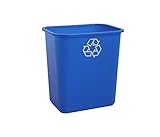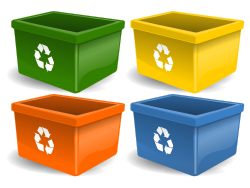A recent story in the news made me reflect on the question, is recycling worth the effort? First, worth in this case has two meanings. One is economic, the other is the value to the environment. I am more concerned with the second of these than the first.
So, what could give reason to pause and reflect? Apparently, in some places recycling has become so popular that the items collected for recycling have exceeded the demand, and the result is large piles of material that is not being used as intended. Even so, there is a value to the landfill issue. Landfills are becoming overfilled. But the new piles are themselves akin to landfills.
Thinking deeper should have us arrive at the conclusion it is not time to abandon the idea of recycling. This is especially true of resources that cannot be renewed.
Another reason to continue recycling is there is no indication the problem of too much recycling is global. It may be localized, and probably is. Continue reading to find the details we need to know, but we may never be able to ascertain.





















 The Linear Equation and Related Equations and Inequalitieson 08/15/2024
The Linear Equation and Related Equations and Inequalitieson 08/15/2024
 Understanding Calculus: A Simplified Approach to Derivativeson 08/05/2024
Understanding Calculus: A Simplified Approach to Derivativeson 08/05/2024
 Limits: Vital Building Blocks of Calculuson 08/01/2024
Limits: Vital Building Blocks of Calculuson 08/01/2024
 Mardi Gras Collectibleson 02/02/2023
Mardi Gras Collectibleson 02/02/2023



Comments
There was a drop off center, and I believe it is still there. selling to scrap metal companies is difficult because crooks began recycling copper from air conditioner units, and even electrical wiring from incompleted homes while they were under construction. In fact, my ground wire was pulled from my house even though it is occupied.
blackspanielgallery, Thank you for the practicalities and products. Is the only way of recycling where you are by private or public collection of set-out bins? Or is there a network of drop-off recycling centers where one may or may not get paid, for instance, by number of cans or weight of paper?
We have Costco over here as well.
Here most are cardboard, and a few Styrofoam, or something close to it. But I get eggs at a large warehouse store called Costco. They use transparent plastic, which makes viewing easy to avoid getting cracked eggs. They recycle, but reuse is better, And the eggs are caged-free eggs, which is better for the chickens.
In the UK egg cartons are made of a kind of cardboard/pressed paper, so they re easily re-used/recycled.